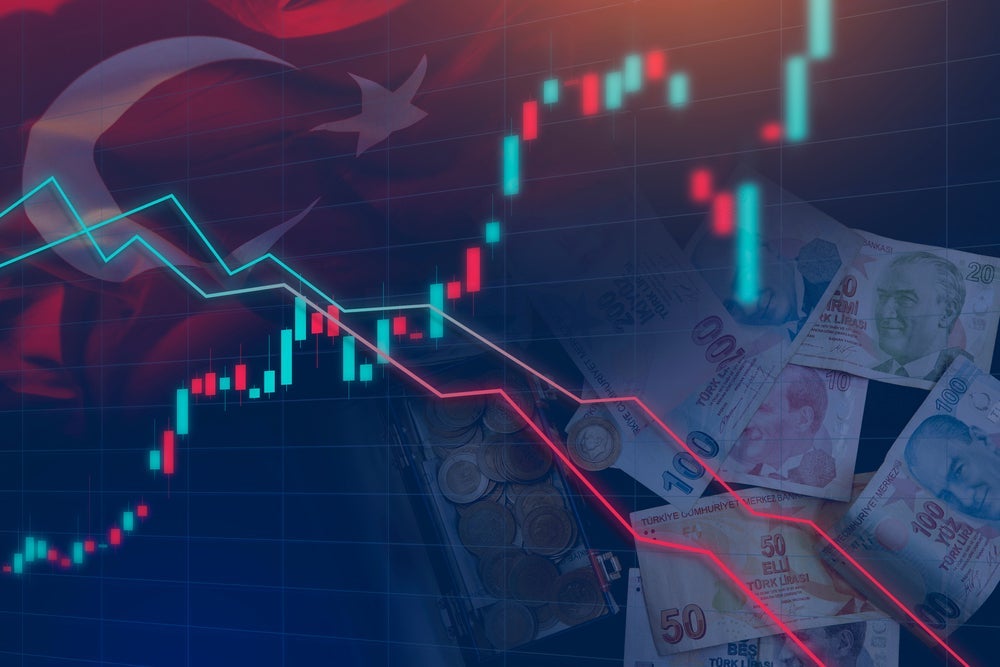
This weekend saw Turkey’s veteran leader Recep Tayyip Erdoğan very nearly snatch victory in the country’s national elections, thereby extending his rule into a third decade. After a hard-fought campaign that had raised hopes of an opposition breakthrough, Erdoğan secured 49.5% of votes in the presidential race, well ahead of his main rival Kemal Kılıçdaroğlu with 44.9%, according to Turkey’s election authority.
With no candidate securing more than 50%, the Supreme Election Council announced on Monday 15 May that Erdoğan and Kılıçdaroğlu would go to a second round of voting on 28 May, a run-off contest where the incumbent is the clear favourite. Kılıçdaroğlu, leader of the CHP party, represents an election coalition of six opposition parties.
Amid this tense race, markets have held their breath. The Turkish lira has been one of the world’s worst-performing currencies for a long time already. “Should Erdoğan win, we expect this downward trend for the currency to gain momentum, and it could face collapse within this quarter,” said Nigel Green, the CEO and founder of deVere Group, one of the world’s largest independent financial advisory organisations.
“This is because confidence in the crisis-stricken lira will be further eroded as the incumbent president would continue his highly unconventional monetary policy agenda, which sees Erdoğan opining that raising interest rates increases inflation, instead of cooling it.”
Currently, the official inflation rate is just above 50%, but analysts believe it is actually higher than 100%.
Green continues: “It’s likely that an Erdoğan win will mean a significant and rapid devaluation of the Turkish lira, leading to a loss of confidence in its value and a decline in its purchasing power relative to other currencies.”
How well do you really know your competitors?
Access the most comprehensive Company Profiles on the market, powered by GlobalData. Save hours of research. Gain competitive edge.

Thank you!
Your download email will arrive shortly
Not ready to buy yet? Download a free sample
We are confident about the unique quality of our Company Profiles. However, we want you to make the most beneficial decision for your business, so we offer a free sample that you can download by submitting the below form
By GlobalDataA sharp decline in the exchange rate would likely be accompanied by hyperinflation, economic instability and financial turmoil within Turkey.
The past two years have seen Turkey’s currency plummet and prices rise considerably, triggering a cost of living crisis that has helped erode Erdoğan’s conservative, working class base.
Kılıçdaroğlu, the opponent, is fighting as a unity candidate for six opposition parties, ranging from his own centre-left party and the nationalist Good Party to four smaller groups, which include two former Erdoğan allies, one of whom co-founded the AK Party.
The outcome of Turkey’s election will determine the trajectory of the country’s under-siege currency for years to come, a trend that will impact trade, tourism and foreign direct investment to the country in both positive and negative ways. If economic instability does not lead to increased political instability, a cheaper lira could benefit buyers and spenders from outside Turkey.






